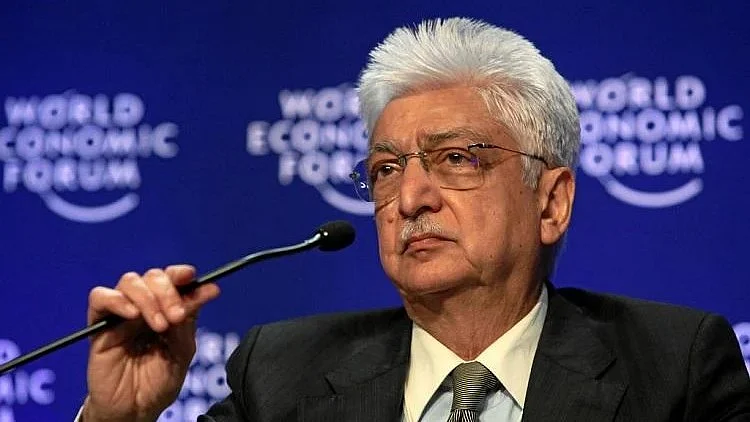Premji declines Karnataka CM’s request to open Wipro campus to limited traffic
CM cited inputs from experts suggesting move could reduce congestion on surrounding sections of Outer Ring Road

Wipro founder-chairman Azim Premji has turned down Karnataka chief minister Siddaramaiah’s request to allow limited public vehicular movement through the company’s Sarjapur campus in Bengaluru, citing legal and governance constraints.
Premji emphasised that the campus is private property owned by a publicly listed company and not meant for public use.
In a letter to Premji on 19 September, Siddaramaiah had appealed to the industrialist to consider permitting restricted vehicle passage through the Wipro campus, subject to mutually agreed terms and adequate security measures.
The chief minister cited preliminary inputs from traffic and urban mobility experts suggesting that such a move could potentially reduce congestion on surrounding sections of the Outer Ring Road (ORR) by up to 30 per cent during peak hours.
“Your support in this matter will go a long way in easing traffic bottlenecks, enhancing commuter experience, and contributing to a more efficient and liveable Bengaluru,” Siddaramaiah wrote. He also urged Wipro’s team to engage with government officials to work out a mutually acceptable arrangement.
Responding to the chief minister’s request on Wednesday, Premji acknowledged the traffic challenges faced by Bengaluru and praised the CM’s leadership in addressing the issue. However, he firmly rejected the proposal, pointing to legal and compliance complications.
“With respect to the specific suggestion of allowing public vehicular movement through our Sarjapur campus, we apprehend significant legal, governance, and statutory challenges, since it is an exclusive private property owned by a listed company not intended for public thoroughfare,” he said.
Premji also highlighted that the Sarjapur facility is a Special Economic Zone (SEZ) that caters to global clients. The terms of such contracts, he explained, necessitate strict access controls which cannot be relaxed. “Our contractual conditions mandate stringent, non-negotiable access control norms for governance and compliance,” he stated.
He added that opening up the campus to public traffic would not offer a sustainable or effective long-term solution to the city’s congestion problems.
Nonetheless, Premji assured the state government that Wipro remained committed to working collaboratively towards resolving Bengaluru’s mobility crisis. “Wipro nevertheless stands committed to partner with the Government of Karnataka to find a lasting solution for Bengaluru's mobility challenges,” he wrote.
Premji called for a comprehensive, expert-led study to understand and address the multifaceted traffic issues affecting the city, especially along the ORR corridor, which he described as a key export-oriented economic hub. “The problem's complexity, stemming from multiple factors, suggests that there is unlikely to be a single point solution or a silver bullet to resolve it,” Premji noted.
He proposed commissioning a scientific, data-driven study by a reputed institution with global expertise in urban transport planning and management. Such a study, he said, could generate actionable solutions for the short, medium, and long term.
“To demonstrate our commitment to being a part of the solution, Wipro will be pleased to engage in this process and underwrite a significant portion of the cost for this expert study,” he added.
Bengaluru’s Outer Ring Road continues to be a source of frustration for commuters and businesses alike, with persistent congestion, poor road conditions, and rising travel times.
The issue recently gained renewed public attention when Rajesh Yabaji, CEO and co-founder of logistics startup BlackBuck, posted on X that his company planned to shift operations away from the ORR area (Bellandur). He cited worsening traffic conditions, an average one-way commute of over 90 minutes for employees, and a lack of urgency in addressing infrastructure issues.
“Didn’t see any of this changing in the next 5 years,” Yabaji remarked, highlighting the deteriorating quality of life and productivity concerns plaguing the tech corridor.
With PTI inputs
Follow us on: Facebook, Twitter, Google News, Instagram
Join our official telegram channel (@nationalherald) and stay updated with the latest headlines
